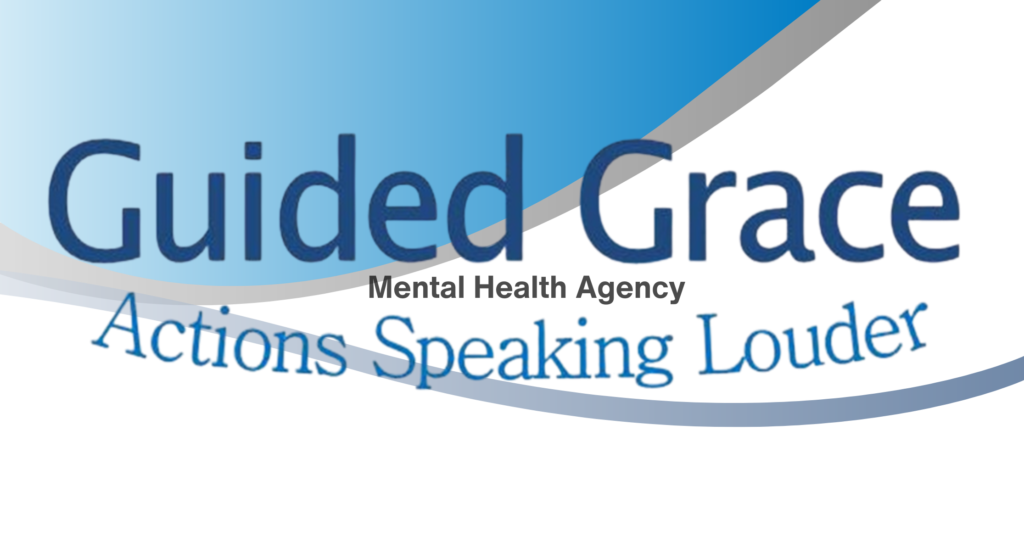As children and teens develop and grow, they will have to learn how to control, understand, and let go of certain emotions. They will often be faced with scenarios that they have never experienced before, and may not yet have the coping mechanisms necessary to handle these emotions in a healthy way. If these problematic events aren’t properly addressed, they may lead to the development of mental health concerns in the future. Youth Therapy is an excellent way to learn these skills and prepare youths for difficult scenarios that may unfold in life.
Roughly 1 in 5 children will experience some form of a mental health disorder. Youth therapy is equally useful for parents as well, as therapy sessions can provide parents with skillsets and strategies that can help their child feel better and improve. Therapy is a safe space where children can process thoughts and emotions.
The team of professionals at Guided Grace specializes in family and youth services. We offer therapy and counseling services to children and teens who may be experiencing a number of family, social or school-related issues. The purpose of your visit may range from preventing concerning behavior to treating emotional trauma. Our one and only goal is to help families learn, grow and live happy lives together.
How Can Youth Therapy Help?
Concerns and Life Events Such as:
- Family problems
- Trouble at school
- Bullies
- Health concerns
Help Address Feelings Such as:
- Sadness and depression
- Anger
- Stress and Anxiety
- Low self-esteem
- Grief and loss
Behavioral and Cognitive Conditions Such as:
- ADHD
- Depression
- OCD and anxiety
- Eating disorders
- Self-harm
- Disruptive behavior disorders
- Trauma
Why Do Children and Teens Need Youth Therapy?
Most children and teens understand emotions, they are just missing the experience needed to cope with them in a healthy way. Another valuable element of therapy is teaching kids how to communicate their thoughts and emotions. In some cases, children need help expressing how they feel. Guided Grace’s trained family and youth therapists utilize scientifically backed methods to help children and their parents move forward together, as a team.
How Does Youth Therapy Work?
In therapy, kids learn by experience. Positive affirmations are a powerful way to reinforce good behavior and offer a healthy way to support kids as they learn these skills. They help build self-confidence by receiving validation for communicating and expressing themselves in a constructive way. Therapy sessions can provide the foundation for positive thought processes and a more optimistic approach to life.
Sessions can be 1 on 1 with the therapist and child, while other sessions might be more effective with the parent present throughout. Each child is different and so too is the therapy they receive.
Play Therapy, Group Therapy, What Happens in Therapy Anyway?
The first session or two is when we listen, ask critical questions and perform analysis to understand the scope of the problem. Once we have a better understanding of your family dynamic, we can create a plan that offers you and your child real assistance. Subsequent therapy sessions may include any of the following:
Talk: express feelings and thoughts in a calm and constructive manner. When kids are allowed to speak their minds, they can feel empowered and won’t feel the need to act emotionally to be heard. Therapy sessions reinforce the importance of this calm communication.
Play: Play therapy is a form of counseling that relies on play to help therapists communicate with children and understand their mental health. It is typically available for children ages 3 to 11. Because children develop cognitive skills before language skills, play is an effective way to understand a child.
Sensory: Often children and adults benefit from sensory therapy because there are multiple ways to administer treatments and interventions. Sensory therapy is a therapeutic form of appealing to the senses through touch, sound, light, smell, and sometimes taste. The purpose of this therapy is to use the environment to obtain feedback from the client’s senses to help them manage or overcome a sensory-driven disorder or challenge.
Do exercises: not physical exercises, so much as stress-reducing techniques and/or breathing exercises that calm the mind – as a way to release tension and lower emotions.
Problem Solve: instead of being told what to do or how to do it, your child and their therapist will solve problems together, working as a team to arrive at a positive solution. When children are included in the process, they are much more willing to participate in a positive way.
Youth Therapy Services Available in Saginaw, Michigan
If your child or teen has been struggling with mental health concerns, has been dealing with emotional trauma, or could benefit from coping mechanisms in everyday life, reach out to the specialists at Guided Grace today! Our team has helped countless families and their children build brighter futures and live with a positive outlook on life.
Call our offices to speak with a member of our team or schedule a consultation online today!

